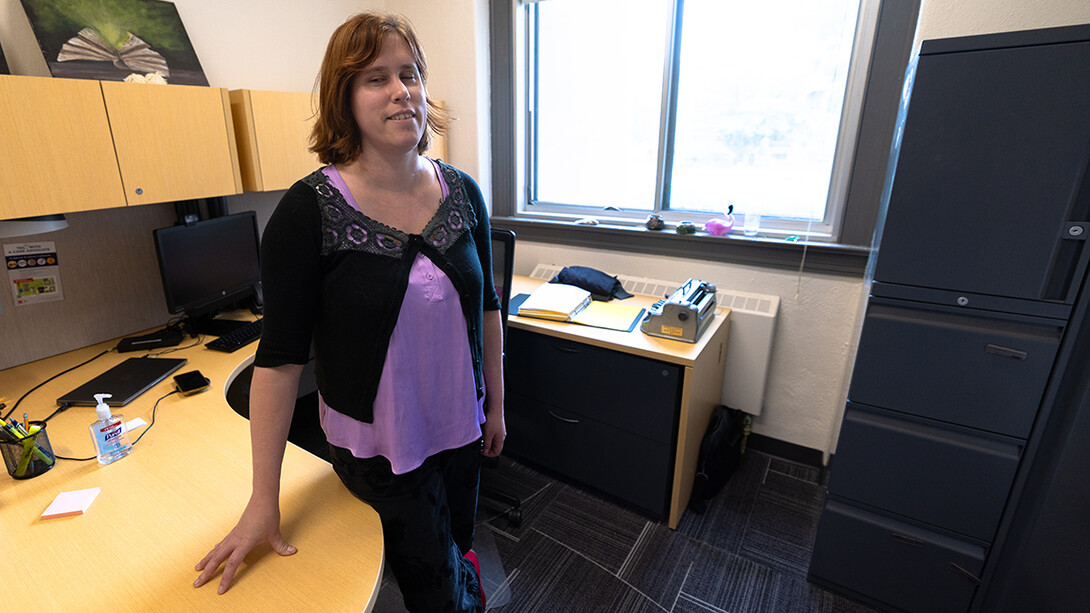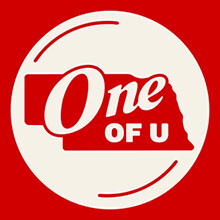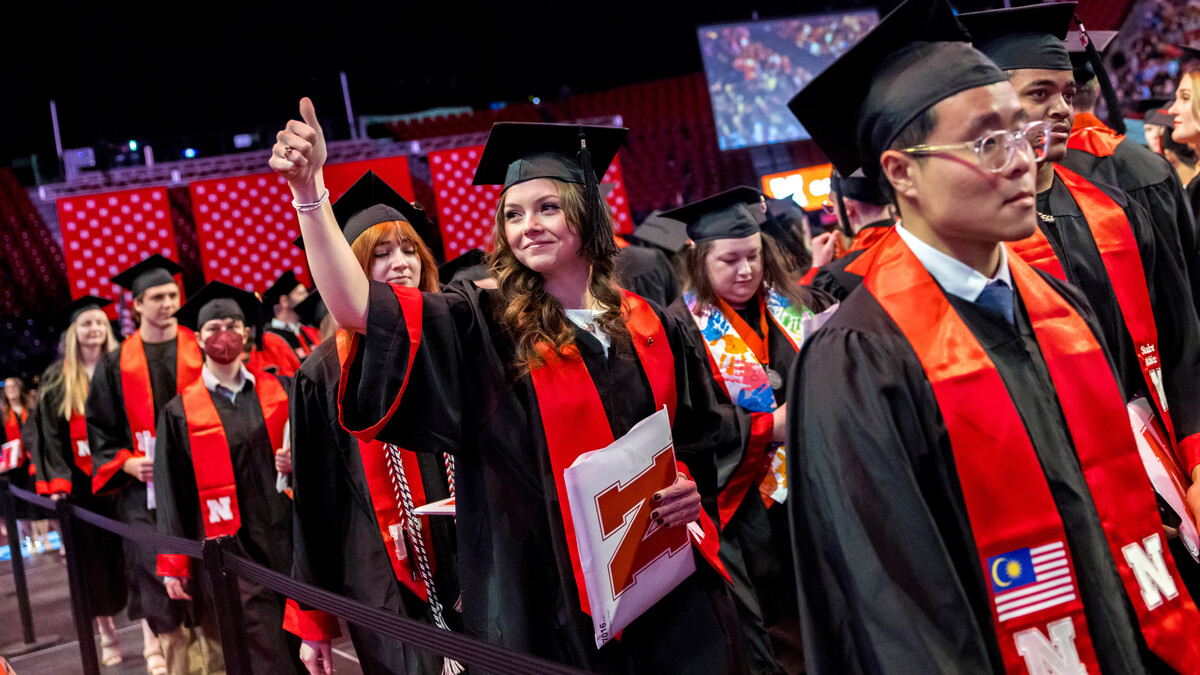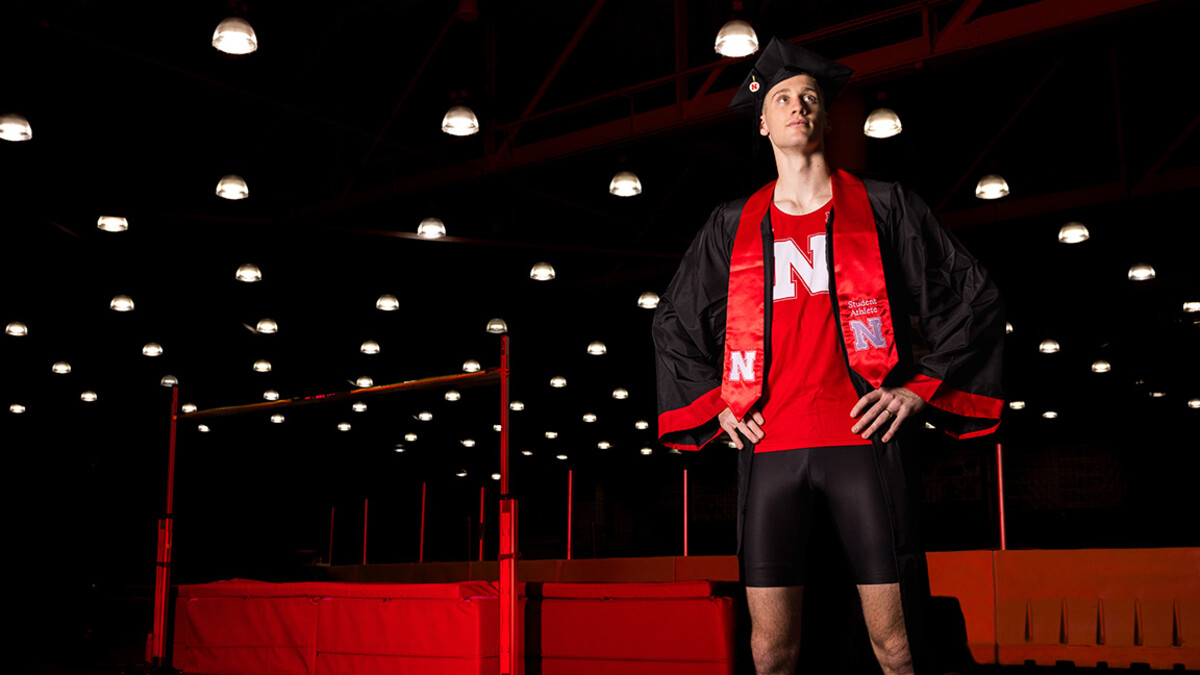
Kelly Coleman wants any student who enters her office to know that there’s someone on campus who will really listen to them and work to make sure they have equal access on campus.
Coleman, disability specialist in the University of Nebraska–Lincoln’s Services for Students with Disabilities, aids students in accessing accommodations in the classroom and on campus. Coleman has open, personalized discussions with Huskers to identify how the university can equalize access to education.

“I think it’s crucial getting students comfortable advocating for themselves and understanding how accommodations work, and in general it’s nice to have that relationship with somebody on campus, so it’s beneficial to have that connection,” she said.
Coleman, a Lincoln native and Nebraska alumna, is herself blind and was working for the Nebraska Commission for the Blind and Visually Impaired prior to joining the staff at Nebraska about two years ago. She still teaches classes on Braille to future teachers. In her job with the university, Coleman collaborates with both students and faculty to remove barriers to education.
“I work with students on an individual basis to figure out what is not accessible in the classroom and then, is there something I can do to mitigate that barrier?” Coleman said. “We also work with faculty if they have questions about how to implement an accommodation or what they can do for their classrooms or material to be more accessible.”
This might mean ensuring the student has access to a screen reader for class materials or a wheelchair ramp to get into the building, or arranging for extended time to complete an exam.
The process typically starts with a one-on-one conversation with the student about their specific needs. Some students might come into Coleman’s office regularly, while many might only be there once as an incoming freshman. Coleman said those individualized conversations help get to the heart of how she can best serve the student by identifying the right combination of accommodations for them.
“I could get two students with the same diagnosis and I’d still have to meet each one of them,” Coleman said. “A lot of the conversations are similar in tone, but I would never want to say to a student, ‘You need this,’ just based off your paperwork. To me, that’s discounting the student and their lived experiences. It’s important they have that autonomy.”
Sometimes she meets with a student who is reluctant to use accommodations, which can happen for any number of reasons. As an undergraduate, Coleman was one of those students, and her own experience helps her connect to these students and explain how accommodations could benefit them.
“I was on academic probation before I used my accommodations, so it helps me relate to students who, maybe their diagnoses are new or they’re nervous to use the accommodations for whatever reason,” she said. “I can say, ‘Here’s what happens if you don’t.’ It helps them know they’re not alone in trying to navigate that.”
Since joining the university staff, Coleman has learned more about a range of disabilities and how they can intersect, assistive technologies and how life circumstances can influence people’s needs.
“I liked the idea of being on the other side," Coleman said. "I knew what I needed, but I was curious how you determine what someone needs."
Coleman said she hopes her assistance shows students that accommodations aren’t in place because they’re less capable; it’s about providing tools for equal access.
“We’re here to provide equal access and support students, and by the time they leave college, I hope they understand accommodations are there to provide equal access,” Coleman said. “They have a right to accommodations, and it’s OK to use them.”
______________________________________________
Editor’s Note — “One of U” is a Nebraska Today series that shines a light on the inspiring work and unwavering dedication of staff members at the University of Nebraska–Lincoln. These stories honor those who go above and beyond to support student success and strengthen our Husker community. To nominate someone for the series, please contact Troy Fedderson at tfedderson2@unl.edu.







